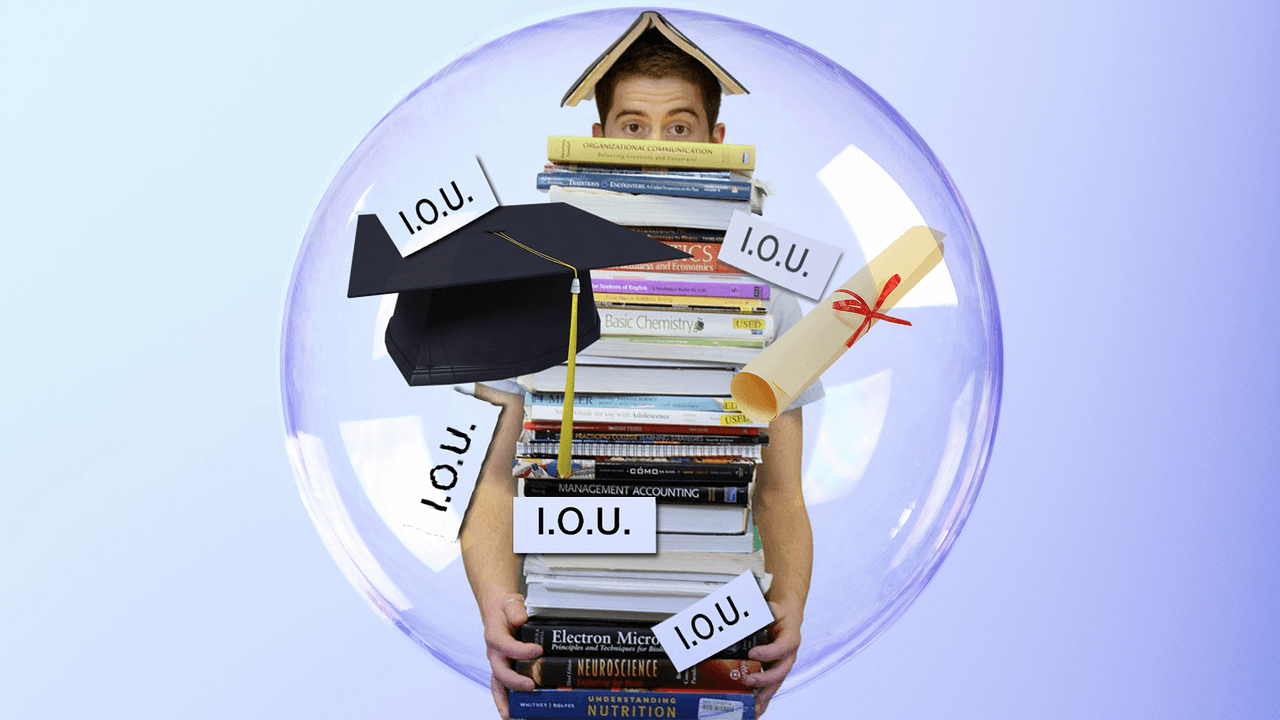Student-centric advice and objective recommendations
Higher education has never been more confusing or expensive. Our goal is to help you navigate the very big decisions related to higher ed with objective information and expert advice. Each piece of content on the site is original, based on extensive research, and reviewed by multiple editors, including a subject matter expert. This ensures that all of our content is up-to-date, useful, accurate, and thorough.
Our reviews and recommendations are based on extensive research, testing, and feedback. We may receive commission from links on our website, but that doesn’t affect our editors’ opinions. Our marketing partners don’t review, approve or endorse our editorial content. It’s accurate to the best of our knowledge when posted. You can find a complete list of our partners here.
What Happens to Unused Student Loans
 By
Kayla Korzekwinski
By
Kayla Korzekwinski 
Kayla Korzekwinski is a Scholarships360 content writer. She earned her BA from the University of North Carolina at Chapel Hill, where she studied Advertising/PR, Rhetorical Communication, and Anthropology. Kayla has worked on communications for non-profits and student organizations. She loves to write and come up with new ways to express ideas.
Full BioLearn about our editorial policies

Annie has spent the past 18+ years educating students about college admissions opportunities and coaching them through building a financial aid package. She has worked in college access and college admissions for the Tennessee Higher Education Commission/Tennessee Student Assistance Corporation, Middle Tennessee State University, and Austin Peay State University.
Full BioLearn about our editorial policies

Maria Geiger is Director of Content at Scholarships360. She is a former online educational technology instructor and adjunct writing instructor. In addition to education reform, Maria’s interests include viewpoint diversity, blended/flipped learning, digital communication, and integrating media/web tools into the curriculum to better facilitate student engagement. Maria earned both a B.A. and an M.A. in English Literature from Monmouth University, an M. Ed. in Education from Monmouth University, and a Virtual Online Teaching Certificate (VOLT) from the University of Pennsylvania.
Full BioLearn about our editorial policies

Sometimes, students borrow more in student loans than they need to fund their education. Students in this situation may wonder “what happens if I don’t use all of my student loans?” In most cases, colleges will refund the money to the student. Continue reading to learn more about what happens to unused student loans so you avoid taking more than you need to be a successful student.
Also see: How to apply for student loans: federal and private
Direct and indirect costs
When students borrow loans, the amount borrowed is based on the school’s cost of attendance (COA). The COA is an estimate that includes both “direct” and “indirect” costs.
Direct costs
Direct Costs are things like tuition and fees, or what the student sees on the bill from the college or university.
Indirect costs
Indirect costs are things like books, insurance, room and board, travel expenses, etc.
Also see: How to get a free laptop for college
When it comes to loans, carefully consider what you need and accept only that amount!
Since the direct costs are pretty much what the college or university requires for tuition, it is pretty cut and dry as far as how much loan money is needed. Students should always make sure that all free funding options are exhausted before taking loans to cover tuition and fees expenses.
Now for the indirect costs, which can differ from student to student spending on where they live, the expense of books required, lab costs, clubs joined, etc. Students should consider the loan amount they need to live and be successful students. After careful consideration of what they need, and only what they need, they should request the amount of funds to cover that.
As a reminder, all students should think about free funding options first!
Related: 5 ways to go to college for free
Student loan refunds
Sometimes, students may end up borrowing more than needed. If this happens, the student will receive a refund. You must cancel all or part of your loan within 120 days of receiving the loan in order to have no interest or fees attached.
The refund money can come in the form of a check, direct deposit, or credit to your school account. Student loan refunds are disbursed every semester, usually after the school’s add/drop period.
Also see: How do student loans affect my credit score?
What to do with unused student loan money
Return the money
Student loan refunds don’t have to be used. Federal loans can be returned within 120 days without having to pay interest. However, students will have to pay interest on returned private loans.
When you take out unsubsidized federal or private student loans, the funds will begin accruing interest immediately. Therefore, it is always best to return any excess student loan money in order to avoid interest charges.
In order to return the money, you’ll have to contact your loan lender directly and ask them how to give back the money. While you may have to be persistent in returning the loan money, it is in your best interest to return any funds that are not needed.
For some reason you waited too long to return unwanted loans–what now?
As mentioned, students will have to repay any refund money that they use, often with interest. We stress that you should return all funds not needed, and make sure that you do not accept more than you need the next semester
If for some reason you absolutely cannot return the money, be sure to spend your refund on education-related essentials.
Pay any existing student debt
If you have existing student loans and debt, it may be wise to use your unused student loans in order to pay these expenses off. Typically, there are two debt payoff strategies available for students to use in this scenario:
- Debt avalanche method
- Debt snowball method
Debt avalanche method
- Pay off debt with the highest interest rate first
- Move on to the next highest interest rate debt after the first is completely paid off and repeat
Debt snowball method
- Pay off smallest debt first
- Move on to bigger debts after and repeat
Remember, there are no prepayment penalties for both federal and private student loans, so there is no penalty for paying off student loans early! However, do not put yourself in a position to be unable to pay off loans because you used your unused student loans to pay off other loans. This can end in a tricky financial situation and can be avoided if you return the money instead.
See also: What to do with a student loan refund check
What not to do with a refund check
A student loan refund may “feel” like a cash refund that you can spend on anything. It can be tempting to use the refund on nonessentials such as a vacation or shopping. However, any money that you spend will end up costing much more when you repay it with interest.
Also see: Paying off student loans early
How to prevent unused student loans next time
Typically, you will receive a financial aid award letter at the beginning of the semester that reveals how much aid you qualify for. What you qualify for and what you need may be different. However, it is common for students to take out the maximum amount of loans they qualify for in order to afford college. With careful consideration of what you actually need, you can avoid doing so.
If you mistakenly took out more than you needed, evaluate and then adjust how much you take out for next semester. As stated earlier, students should carefully consider what they need to be a successful student and only take the loans necessary to achieve that.
Sit down and review your expenses for that semester including transportation, housing, and other miscellaneous bills. Then, consider if your expenses will be the same or different for the upcoming semester. Lastly, take out the amount of loans you calculated for rather than the maximum amount for that semester in order to avoid obtaining unnecessary loans.
Also see: How to create a budget as a college student
Other student loan resources
If you’re in the process of taking out or repaying student loans, we’ve got a lot of resources to help you make your choices. Our guide to the best student loan repayment plans is a great place to start. We especially recommend checking out income-based repayment plans. We can also guide you through different types of student loans, including federal Stafford and Parent PLUS loans, and help you weigh different private loan opportunities.
If you’ve taken out loans from several sources, you may also want to consider refinancing or consolidating. These options can help make your payments more convenient and reduce interest. Finally, we can guide you through identifying and avoiding student loan scams. Good luck with your college financing!
Frequently asked questions about unused student loans
What happens to student loan money that is not used?
What causes unused student loans?
Do I have to pay interest on unused student loans?
Will unused student loans hurt my credit score?
Do student loans expire after 10 years?





